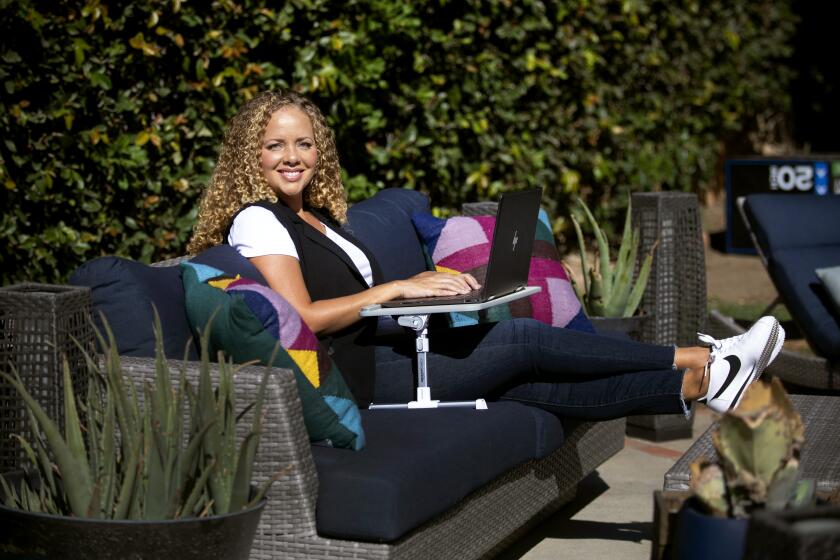When Alan Abdo negotiated with his landlord to end the lease for Olive Tree Restaurant, he remembers saying, “I can’t close fast enough. I’m losing money by the minute.”
Olive Tree was a thriving, well-known Middle Eastern restaurant in Anaheim right up until the enforced business closures began. “The day before, we were still busy,” owner Alan Abdo said. Then, he began losing “between $15,000 and $20,000 a month.”
Abdo said the restaurant was particularly beloved by “people like my dad that immigrated here [and] enjoyed our food because it was like home cooking from back home. And they brought their families.” He said he’d often become friends with guests and join them at their table as they enjoyed their food.
The restaurant caught a temporary break when it was approved for $70,000 in federal Paycheck Protection Program loans, which Abdo used to cover the cost of payroll and rent. But the PPP money ran out in under three months. “No matter what I was going to do,” Abdo said, “I was still going to lose money.”
Though some restaurants have successfully pivoted to takeout, Abdo said it didn’t work for Olive Tree — when they tried it, he said, they didn’t come close to breaking even. “I’m a nice sit-down restaurant. ...We weren’t a fast food place,” Abdo said. “On average people spent between $21 and $25 a person when they came into the restaurant. That was too expensive, especially with people losing their jobs.”
Abdo’s landlord let him out of his lease in exchange for the restaurant’s ovens, refrigerators, tables and chairs, in addition to the recent remodeling Abdo had done to the building. “I basically left a half a million dollars and walked away from it,” Abdo said. But with a family to support, the threat of losing even more money by staying open weighed on his mind. “I didn’t see the light at the end of the tunnel. ... I’m absolutely sure this is gonna get worse. And I don’t want to be a part of it.”
Despite the pain of losing Olive Tree, Abdo said he felt good about his decision to close permanently. “Everybody’s losing money. Well, I stopped losing money,” he said. “It seemed like I was the smartest guy in the restaurant business.”
Abdo said he might reopen Olive Tree Restaurant at some point in the future, but in the meantime, he’s busy with another business pursuit that has taken off during the pandemic: boat charters.
He bought a remodeled 1989 Sea Ray around the same time Olive Tree closed, thinking he could rent it out. He’s been taking people out on cruises of Newport Harbor and Emerald Bay, as well as on longer trips to Catalina Island.
“It was like therapy after closing the restaurant,” Abdo said. This new venture has paid off: At this point, he has earned enough to pay all of his bills through March. “I’m one of those people that’s going to survive this. And if it gets better, and it’s good to open a restaurant, I’m going to have money to do it.”










